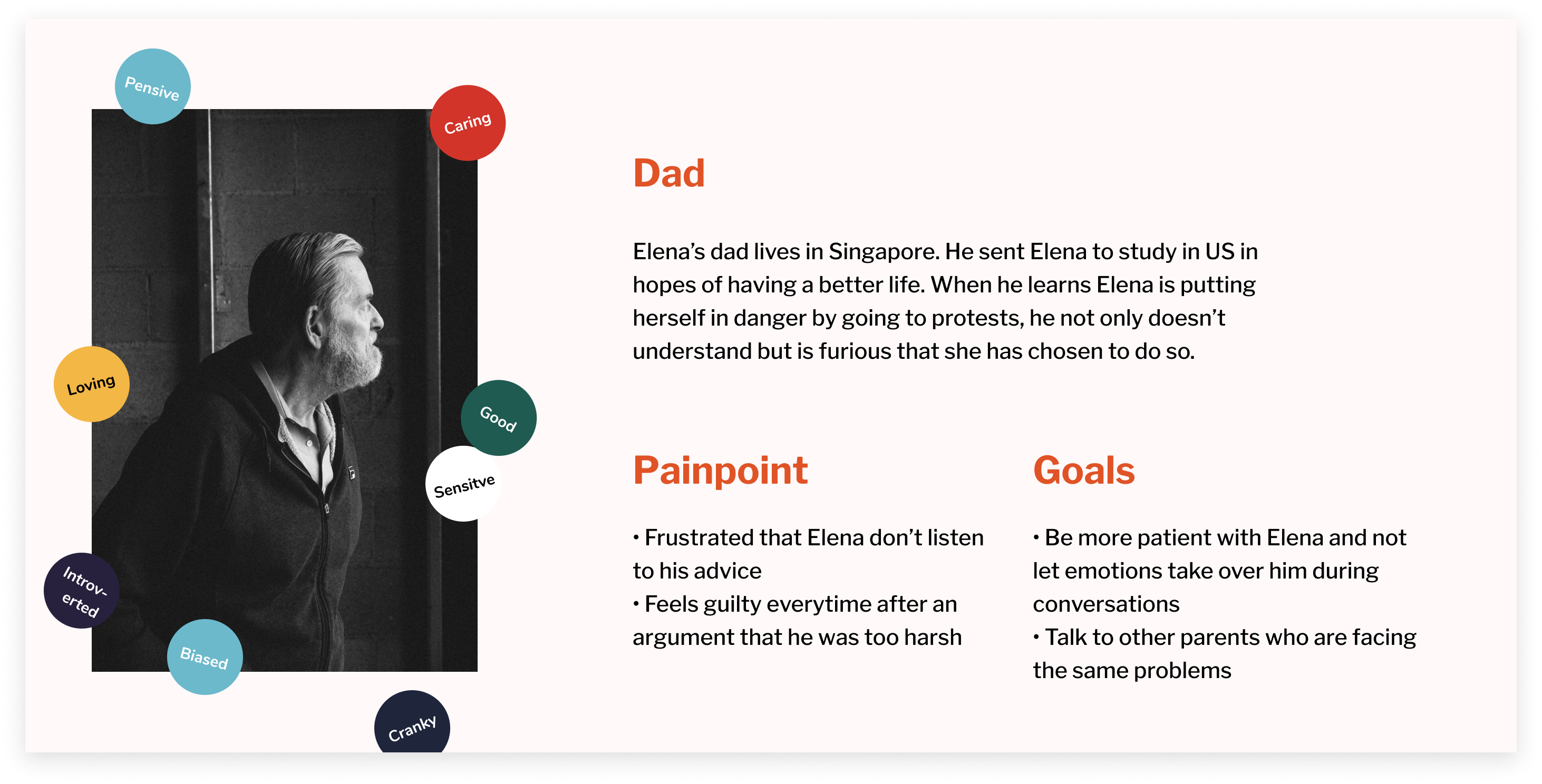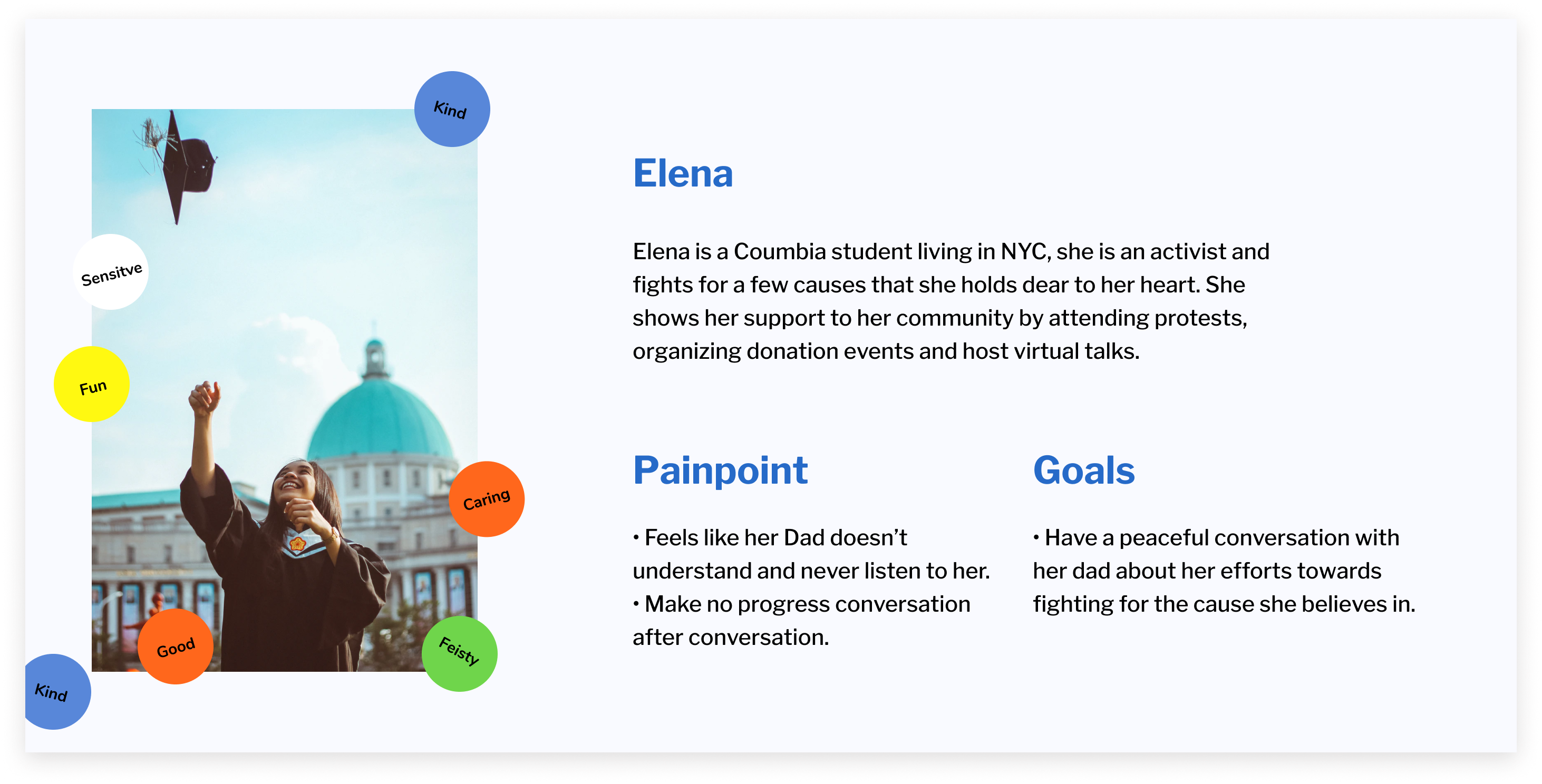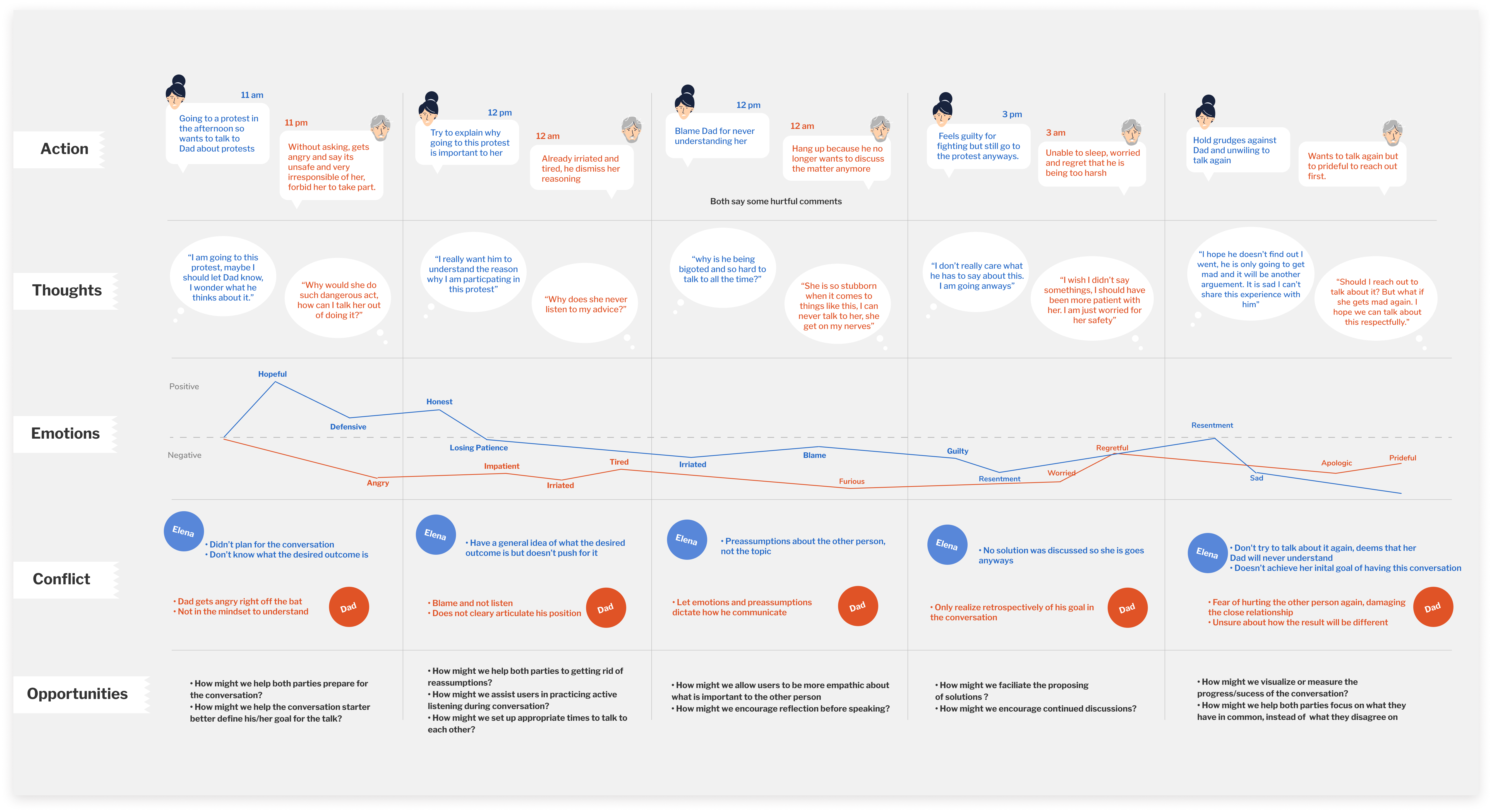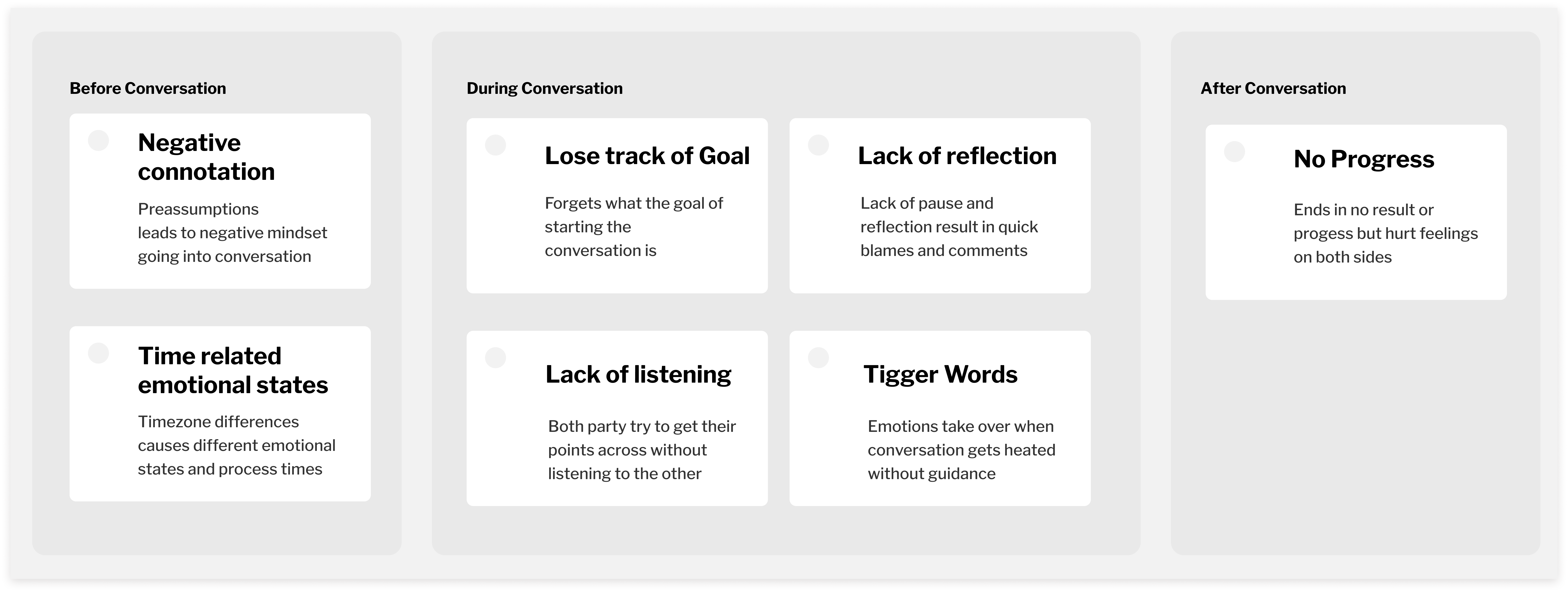Elephant in the Room

Motivation
Continued opinion polarization has caused distress in our community. Movements like BLM, defunding the police, #METOO are joined by millions of young people. Having conversations about these social injustice issues has never been so important in our community. While our generation is eager to show support by posting on social media and attending protests, we sometimes forget to talk to those closest to us, our family and our close friends, who might have a different perspective on these things.
Problem
Conflict and arguments about difference in social, political and moral values and views with those who are closest to us leads to heightened emotions and hurt feelings.
Confusion on what the goal of the conversation is result in no progress. This becomes even harder when the two parties are separated.
How can we have better conversations about these what I call "elephants in room", difficult and sensitive topics when we are hundreds of miles away from our family and freinds?

The Design Goal

Behavioral and attitudinal user research
After setting my topic, I conducted a focus group and a few in-depth interviews(contextual enquiries, journey walkthrough and empathy mapping) validating my assumptions. When recruiting for interviewees, I wanted to focus mainly on people who have had arguments with someone they are close to, and had them walk me through the arguments from beginning to the end.
My goal for these user interviews is to understand:
- What are the main points of conflict?
- What actions/words triggers heightened emotions and conflict?
- What are some regrets and things they think they can do better?
Insightful Quotes

Persona
From research, I created 2 personas that represents two parities of the conversation. A dad and a daughter living oceans part.


As-Is Scenario
To build empathy and better understand how the current conflict is formed within conversation, I mapped out an argument that ocurred with these persona.

Synethizing Insights
Through research, I’ve discovered that many differences are derived from the difference in value systems that are hard to come to an easy agreement to. It requires continued conversation, empathy and understanding. So instead of trying to solve the point of difference, I decided to focus on creating the environment that could foster better disagreements and letting users track their own progress.
Concluding the problem discovery phase, a few user painpoint were clear to be causing miscommunications.

Refined people problem
How might we create a tool that facilitates two parties who had a conflict about a difficult topic, make progress towards a mutual understanding through unbiased and guided communication?
Literature review
Before diving into brainstorming for solutions, I wanted to see what methods of better communication for difficult topics already exist out there. I looked into subjects including family and conversational therapy, meditation, self reflection and early development. Most notably <How to have an impossible conversation>, <Uncomfortable with a Black man> has both empathized on the notion of goal setting, active listening and self-reflection. (see the full list of readings here)

The more I read, and went back to the user painpoint the more I realize that the key for better understanding
is empathy and collaboration, two parities involved have to try to put themselves in the other person shoes.

Eureka!
That is when I had my Eureka moment: trying to understand another group of people whom is very different from oneself is essentially what UX designers do on a daily basis. When utilizing design thinking, we are able to discover hidden problems and brainstorm solutions with users.

Brainstorm Solutions
I invited a few of my friends that I have interviewed with and are potential users to brainstorm solutions with me, and vote on scalability, consistency and desirability.

Design Solution In Progress
While it is really fun to devote my after work hours and weekend to my side projects, sometimes work/freelance takes up these hours as well. This project is put on hold, but I will be back to work on it shortly
© Melinda Chen